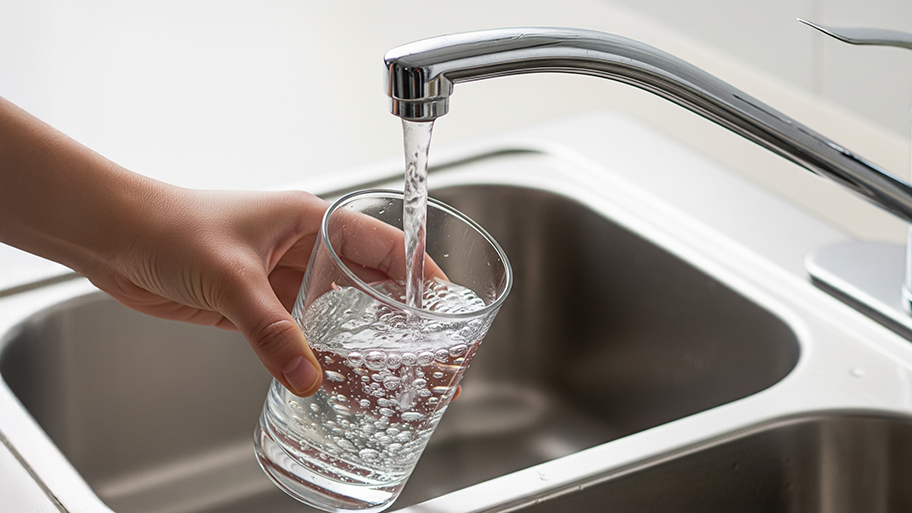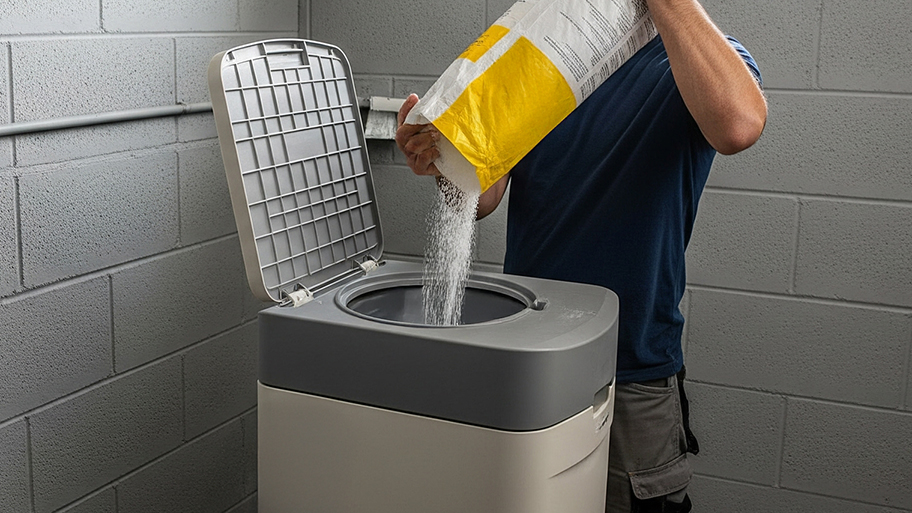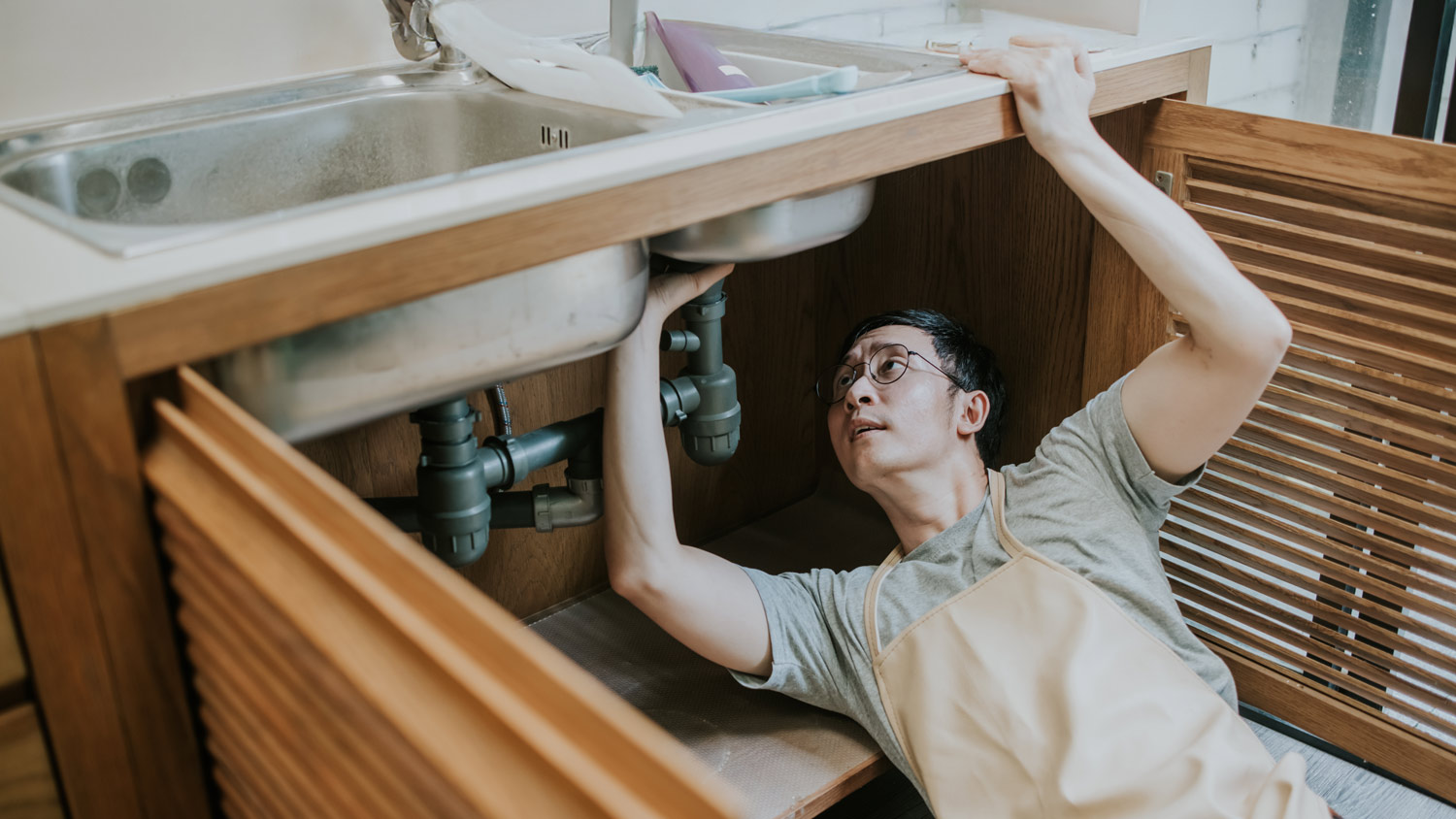
On average, a reverse osmosis water filter costs around $2,200, but there are a few variables that impact the total price. Learn about them in this guide.
Which one is right for you?


When you go to the store to pick up water softener salt refills, are you just grabbing the first bag you see, or do you know exactly which type is best for your specific water softener? As it turns out, those bags of water softener salts aren’t all the same. They come in different formats, like pellets, blocks, or liquids, and some have more impurities than others. Read on to learn about different water softener salt types and determine which is right for your system.
| Water Softener Salt Type | Average Purity Level |
|---|---|
| Evaporated salt | 99.9% |
| Solar salt | 99% |
| Rock sal | 95% |
| Block salt | 99.8% |
| Rust/iron removal | 99.6% |
| Potassium chloride | 99–99.9% |
| Specialty cleaning salts | 99–99.6% |
Evaporated salts are made through steam, turning the salt into a crystallized material that can then be produced into salt pellets, crystals, or cubes for your water softener. The evaporative process means this type of water softener salt is some of the purest you’ll find on the market at around 99.9% purity. However, this also means that it can come with a higher price tag.
Because it has little to no impurities and dissolves quickly, evaporated salt is less likely to form stubborn salt bridges that can clog up the brine tank. It’s also great for homes with very hard water, or more than 180 milligrams per liter of calcium carbonate, according to the U.S. Geological Survey.
| Pros | Cons |
|---|---|
| Over 99.9% purity | More expensive |
| Less likely to clump | Less availability |
| Effective on very hard water | May clump in humidity |
Best for: Households with very hard water
When you imagine water softener salt, you’re probably thinking of solar salt, which is widely available and works with many water softener models. If you’re looking to strike a balance between a high-quality water softener salt and one that’s budget-friendly, solar salt could be just the compromise. Solar salt, available in water softener crystals or pellets, is made by using solar power to dry out seawater, leaving behind the salt. It’s not quite as pure as evaporated salt, but it does boast over 99% purity levels.
However, it has a lower solubility level than evaporated salt, meaning it’s not as quick to dissolve. This could cause the salt to clump and form salt bridges, especially in humid areas. Also, keep in mind that even the low level of impurities in solar salts can lead to staining around the brine tank or discolored water in the water softener, so be sure to clean the water softener and its tanks every year to every few years.
| Pros | Cons |
|---|---|
| High purity over 99% | Not as pure as evaporated salt |
| Lower-cost salt | Impurities can stain brine tank over time |
| Eco-friendly option | Lower solubility |
Best for: Homes with moderately hard water
If you need to stick to a strict budget, you may consider rock salts, which are widely available and one of the lowest-cost options for water softener salts. When it comes to how often water softeners regenerate and require additional salt refills, it varies. Some models may regenerate multiple times per day, so homeowners can expect to refill the salt every six to eight weeks. That can really add up, so some homeowners may prefer to cut monthly or bimonthly costs by using rock salts.
But what you save in salt refills, you may spend in water softener repair costs. Rock salts are mined from underground, like evaporated salts, but they don’t go through much processing to remove any impurities. The higher levels of impurities, namely calcium sulfate, can cause clogs that wear out the water softener parts quicker.
| Pros | Cons |
|---|---|
| Low-cost option | Low solubility |
| Widely available | Higher impurities |
| Doubles as a de-icer for sidewalks | Can wear out unit faster |
Best for: Homeowners with time to handle more frequent maintenance

Boasting around a 99.8% purity level, block salts are a good value with low impurities at a low cost. With this type, the salt isn’t sold in pellets or crystals. Instead, it comes in a block form that sits in the brine tank. Because of the size of the salt block, you’ll need a larger brine tank that can accommodate the block and the higher water level you need to properly submerge the block. Only use block salt if your specific water softener user manual or a local water softener installation company recommends it.
The block will dissolve slowly, which means the brine won’t be as concentrated as it would with other water softener salt types, like evaporated salts. But the block form does help avoid salt bridges that can clog up the brine tank, and it helps reduce the amount of maintenance your water softener may need.
| Pros | Cons |
|---|---|
| Prevents salt bridges | Requires high water level in brine tank |
| High purity level | More difficult to set up |
| Low maintenance | Creates weaker brine |
Best for: Specific water softener models as recommended by their manuals or a pro
Rust-removal or iron-removal salts are made with sodium bi-sulfate and are designed to prevent iron and rust from damaging your water softener and your pipes. If you have well water, which may have more iron than city water, you may want these types of salts to help prevent rust damage.
Be sure to wear protective gear and closely follow the usage instructions for sodium bi-sulfate products because they can cause eye damage, skin irritation, and difficulty breathing.
While these products can help remove trace amounts of iron from hard water, if you have excess iron over the 0.3 milligrams per liter set by the U.S. Environmental Protection Agency, you’ll need to consider whole-house water filtration or purification systems to treat the water, not just iron-removal salts in your water softener.
| Pros | Cons |
|---|---|
| Saves pipes from rust | Needs to be paired with another filtration system |
| Helps prevent iron staining and rust | Doesn’t make high-iron water safe |
| Restores resin impacted by iron | Requires extreme care when handling |
Best for: Homes with well water
Potassium chloride is a popular alternative to sodium chloride water softener salt. You can use potassium chloride in a water softener just like sodium chloride, meaning it will work with many water softener models. This is a popular alternative for people who may need to limit their salt intake, including through drinking softened water. It dissolves well in water, so you won’t need to worry much about clumps or clogs.
Potassium chloride does come at a higher cost than conventional salts. Potassium chloride costs $50 to $70 per 40-pound bag, compared to sodium chloride products that cost $5 to $10 per 40-pound bag. You’ll also need to use more potassium chloride to effectively treat the same amount of water as a smaller amount of sodium chloride.
| Pros | Cons |
|---|---|
| Good for low-sodium intake | Higher cost than salt products |
| High solubility | Need to use more than regular salt |
| High purity level | Not ideal for people limiting potassium intake |
Best for: People limiting their sodium intake
If your water softener is prone to buildup or you’re just looking to cut down on cleaning and breaking up salt bridges, you may consider specialty cleaning salts. These are made with sodium chloride and additives that help keep the water softener and the resin clean.
You may need to order specialty cleaning salts through a water softener company or online, so they may not be as easy to source as standard salts. They also come at a higher cost, around $10 to $20 for 40 pounds.
| Pros | Cons |
|---|---|
| Lower maintenance | Higher cost |
| Helps clean water softener and resin | Less available |
| Reduces salt bridges | May not be necessary for your unit |
Best for: Households with very hard water or well water
From average costs to expert advice, get all the answers you need to get your job done.

On average, a reverse osmosis water filter costs around $2,200, but there are a few variables that impact the total price. Learn about them in this guide.

How much a water softener costs depends on your home’s size, and the system’s type and capacity. Our expert guide explores all the price factors.

Your cost to install an under-sink water filter will depend on the type and size of system you choose and whether you need professional installation.

From activated carbon to reverse osmosis, there are many types of water filters on the market today. Here are 10 of the most popular options.

Your water softener works overtime to keep your water safe. Use this guide on how to check your water heater for damage or poor performance.

What causes hard water? An excess of minerals, like calcium and magnesium, are the culprit, but water softeners can decrease the problem.